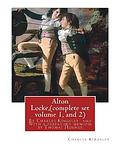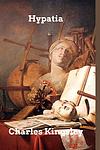Charles Kingsley
Charles Kingsley was a 19th-century British novelist, clergyman, and social reformer. He is best known for his novel 'The Water-Babies, A Fairy Tale for a Land Baby', a work that combines fantasy with social criticism. Kingsley was also associated with the Christian socialist movement and wrote other notable works including 'Westward Ho!' and 'Hypatia'. His writings and his advocacy for education reform and better conditions for the working class made him a significant figure in Victorian England.
Books
This list of books are ONLY the books that have been ranked on the lists that are aggregated on this site. This is not a comprehensive list of all books by this author.
-
1. The Water-Babies, A Fairy Tale for a Land Baby
"The Water-Babies, A Fairy Tale for a Land Baby" is a children's novel that tells the story of a young chimney sweep named Tom who falls into a river and transforms into a 'water-baby'. He embarks on a series of underwater adventures, meeting various creatures and learning important moral lessons. The book uses fantasy and satire to explore themes of child labor, social reform, and the natural sciences.
-
2. Two Years Ago
The novel explores the life of a young Englishman who, after recovering from a serious illness, is spurred by a personal tragedy to reevaluate his life and purpose. As he navigates through various social strata, he encounters a diverse cast of characters, from fishermen to aristocrats, and becomes engaged in the pressing issues of his time, including public health and social reform. Through his journey, he confronts his own doubts and beliefs, and ultimately seeks to find a meaningful place for himself in a rapidly changing world, while dealing with themes of love, loss, and moral responsibility.
-
3. Alton Locke
The novel is a social commentary set in the 19th century, focusing on the life of a young tailor, Alton Locke, who aspires to be a poet. Disillusioned by the oppressive working conditions and class injustices of Victorian England, Locke becomes involved in the Chartist movement, advocating for political reform and the rights of the working class. Throughout his journey, he grapples with his own ambitions, the harsh realities of poverty, and the complexities of social change. The book explores themes of social inequality, the power of education, and the struggle for a fairer society, ultimately delivering a critique of the era's social and economic systems.
-
4. Hypatia
The book is a historical novel set in the early 5th century AD, focusing on the life and tragic demise of Hypatia, the renowned female philosopher, mathematician, and astronomer of Alexandria. Amidst the turbulent backdrop of religious and social upheaval, the story explores the conflicts between the rising Christian faith and the Hellenistic pagan traditions, as well as the struggle for power within the decaying Roman Empire. Hypatia's intelligence and virtue make her a respected figure across various factions, but also a target of jealousy and hatred. Her tragic end comes as a result of the escalating tension between differing worldviews and the fanaticism that ultimately leads to her violent death at the hands of a Christian mob. The narrative serves as a poignant reflection on the complexities of faith, knowledge, and the often-destructive nature of fanaticism.



